Using Big Data Analytics to Transform Healthcare and Medical Research
The healthcare industry generates enormous data. Patient charts, clinical trial results, genetic profiles, and wearable sensor data await analysis, paving the way for data interpretation.

Big data analytics has the power to revolutionize healthcare by leveraging massive volumes of data stored in big data databases. This emerging field drives insights and advancements in healthcare delivery, unlocking hidden connections, predicting disease outbreaks, personalizing treatments, and discovering breakthrough therapies.
Explore the fascinating world of utilizing big data analytics in healthcare and medical research to understand how data interpretation impacts solutions for healthcare challenges.
Table Of Content
Big Data Definition - What Is It?
Mobile Technology and Big Data Synergy Revolutionizing Healthcare
Why Is Big Data Important in Healthcare?
Real-World Examples of Big Data Analysis
The Role of Big Data Analytics in Pandemic Crisis Management
Big Data Applications in Healthcare
Overcoming Challenges and Ethical Considerations
Conclusion
Big Data Definition - What Is It?
Big data is a gigantic collection of information made up of structured and unstructured data that's just too massive and complicated for routine data processing methods.
It's got all sorts of information from places like social media, sensors, and transactions.
This wealth of data is processed and analyzed using advanced techniques to extract valuable insights and uncover patterns, trends, and correlations.
It's like unlocking a whole new world of possibilities for businesses, scientists, healthcare professionals, and tech enthusiasts alike.
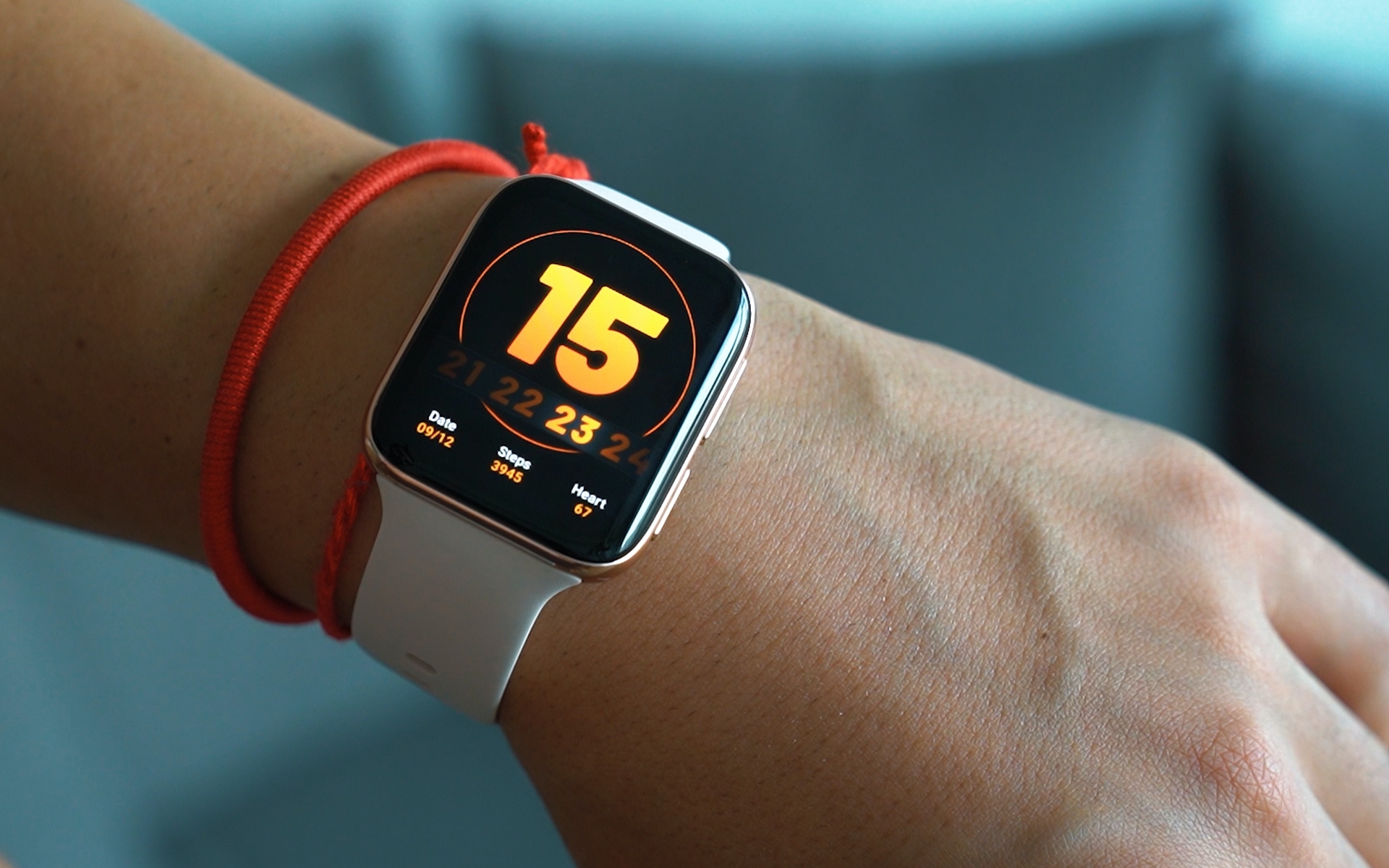
Mobile Technology and Big Data Synergy Revolutionizing Healthcare
Smartphones and fitness apps have empowered individuals to track their health and wellness. Popularity is growing for wearable devices like Fitbit and Samsung Gear Fit, enabling users to monitor their workouts and share data.
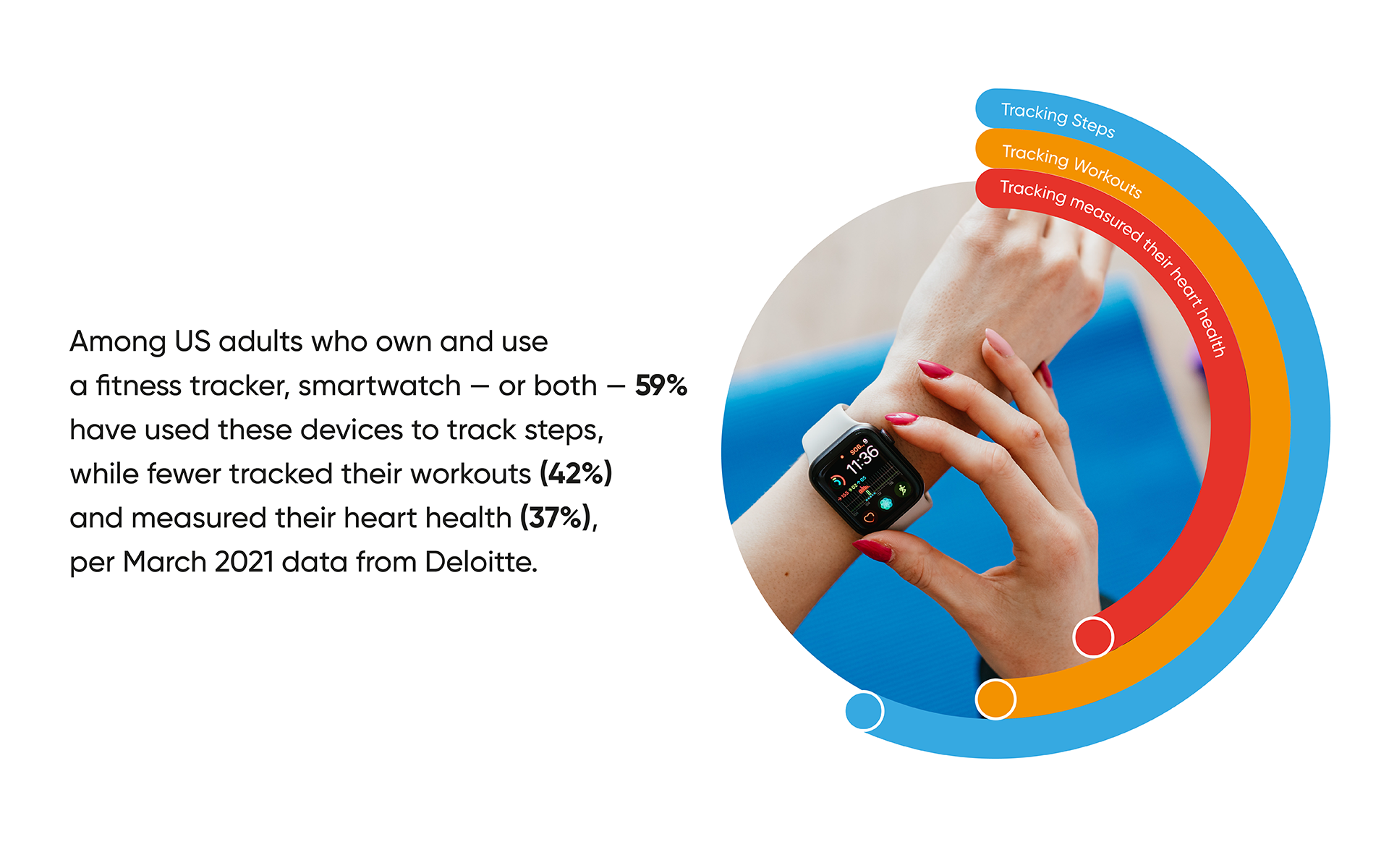 Source: Deloitte.com
Source: Deloitte.com
Doctors may utilize this data for diagnostics in the future, while vast health databases could aid the public in detecting symptoms proactively.
Medical and data professionals have spearheaded ground-breaking work driven by a desire to predict the future and identify problems in advance through their partnerships.
The Pittsburgh Health Data Alliance exemplifies one notable collaboration that aims to leverage diverse data sources in providing personalized healthcare solutions.
Such collaborations enable proactive healthcare and predictive insights, improving patient outcomes.
Why Is Big Data Important in Healthcare?
The healthcare industry places significant importance on big data analytics for several reasons.
Transformation of Healthcare
The healthcare industry has shifted from a volume-based business model to a value-based approach. This has sourced significant transformation in the healthcare industry.
Because of this, healthcare professionals constantly face pressure to deliver high-quality, value-added services to patients while ensuring industry affordability and competitiveness.
However, big data in healthcare can serve as a solution. It can provide valuable support to the healthcare system in resolving the challenges of the transformation.
Driving Evidence-Based Decision-Making
Big data solutions source evidence for decision-making, which holds significant importance in healthcare.
With big data analytics, healthcare professionals analyze and interpret extensive medical data to identify best practices, assess treatment effectiveness, and determine appropriate interventions for specific patient populations.
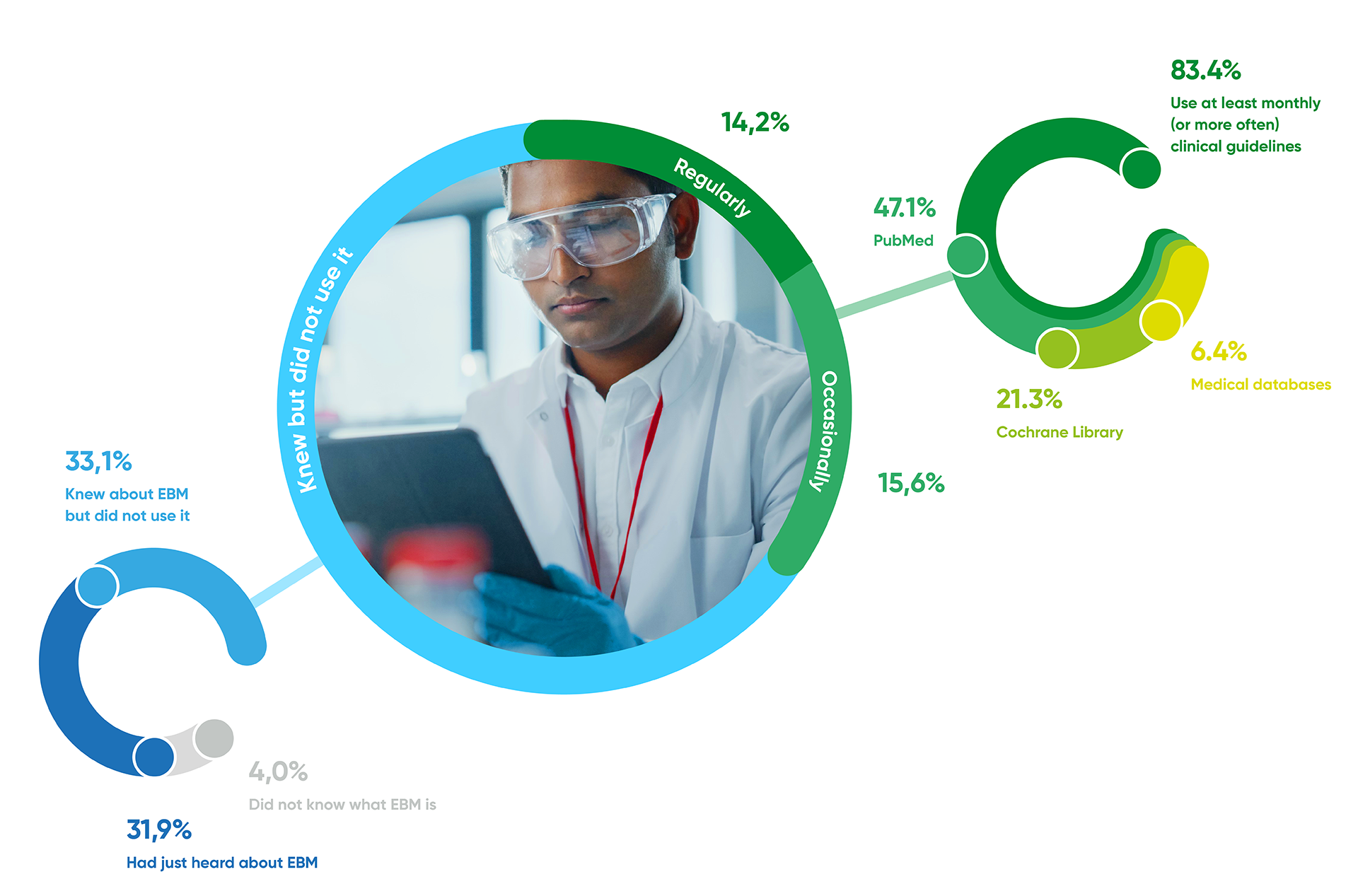
Source: Ncbi.nlm.nih.gov
This drives improved clinical outcomes, reduces care variability, and enhances the overall quality of healthcare services.
Empowering Healthcare Organizations and Insurance Companies
Healthcare organizations, insurance companies, and governmental bodies benefit significantly from big data analytics.
For instance, insurance companies have transitioned from traditional fee-for-service models to value-based data-driven payment models as they now have more reliable data analytics.
This switch has provided patients with relief and incentives.
Moreover, insurance companies can offer better, more customized services to their policyholders using EMRs and other data sources.
This data-driven approach improves the efficiency of insurance operations, enabling more accurate risk assessment and cost management.
Optimizing Resource Allocation and Efficiency
Big data analytics help healthcare organizations optimize resource allocation and improve operational efficiency by analyzing large data sets.
They use big data analytics to identify patterns and trends related to resource utilization, patient flow, and staffing needs.

This data supports healthcare organizations in operating efficiently, improving patient care, and reducing costs.
It enables streamlined processes, data-driven decision-making, shorter waiting times, and effective resource allocation.
Real-World Examples of Big Data Analysis
You can find numerous real-world examples of big data analysis today. One notable example is the "Internet Plus Healthcare" big data centre in Zhongwei, China.
It actively utilizes big data analytics to deliver cloud services to healthcare institutions and IT companies.
The big data centre harnesses the power of big data to process data efficiently, offer real-time insights, and enable effective healthcare management decision-making.
It pioneers the use of advanced technology to elevate the healthcare industry.
India has embraced big data analytics technologies in the healthcare sector. Despite the challenges of rural healthcare, India has initiated several startups specializing in healthcare big data analytics.
These startups are changing the way healthcare will work in the future by using big data platforms, artificial intelligence (AI), and the Internet of Things (IoT).
Together, these tools help them drive innovation and transform the healthcare field.
The Role of Big Data Analytics in Pandemic Crisis Management
During the pandemic, the healthcare system was in a massive crisis. The healthcare resources were exhausting, and the authorities needed to improve at crisis management.
At that time, big data technology came to the forefront to help deal with the problem.
Big data helped keep track of the virus's spread and lessen its effects. With real-time collection, processing, and analysis of a tremendous amount of health data, organizations were able to figure out how viruses spread, find hotspots, and take adequate steps to stop the spread.
Here are some critical aspects of big data's role in pandemic crisis management:
Tracking and Surveillance
Big data analytics emerged as a true hero in monitoring the comings and goings of individuals during the pandemic.
With a keen eye on the data from sources like social media, mobile phones, and public transportation, authorities kept a vigilant watch on population movements.
This invaluable information helped them swiftly identify potential hotspots and roll out targeted interventions.
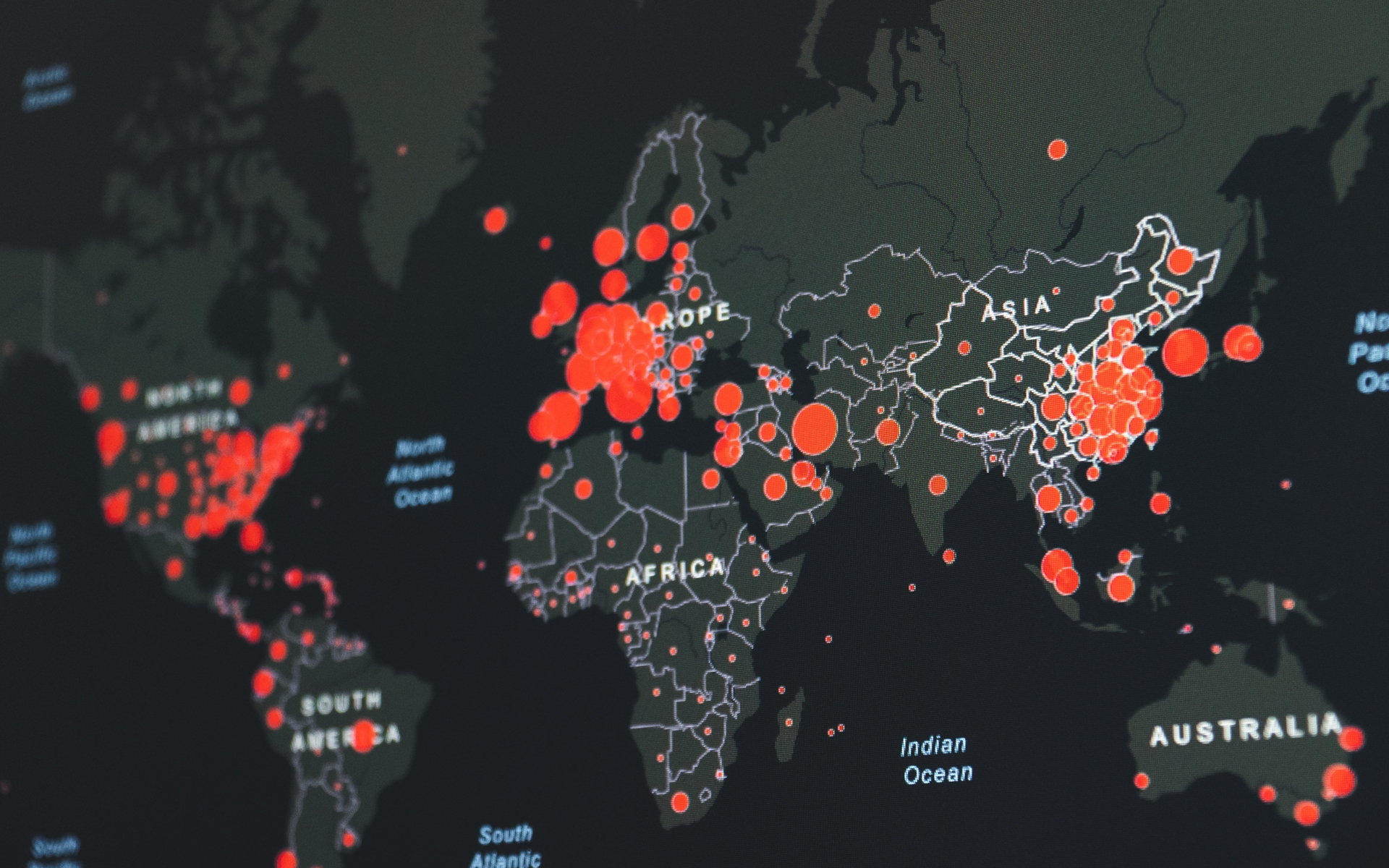
Decision-Making Support
Big data analytics has provided valuable insights for policymakers and healthcare managers to make informed decisions by analyzing a vast amount of data related to infection rates, hospital admissions, and resource utilization.
Decision-makers used this data to manage resources, plan healthcare strategies, and implement preventive measures.
Contact Tracing and Exposure Notification
Big data technology has supported contact tracing efforts by identifying individuals who may have encountered an infected person.
By analyzing data from various sources such as mobile apps, GPS tracking, and credit card transactions, contact tracing algorithms have helped identify and notify individuals at risk of exposure.
Predictive Modeling
Big data analytics has enabled the development of predictive models to anticipate the spread of the virus and forecast healthcare demands.
By analyzing historical data, demographics, and socio-economic factors, these models have helped in predicting the trajectory of the pandemic, identifying vulnerable populations, and planning resource allocation accordingly.
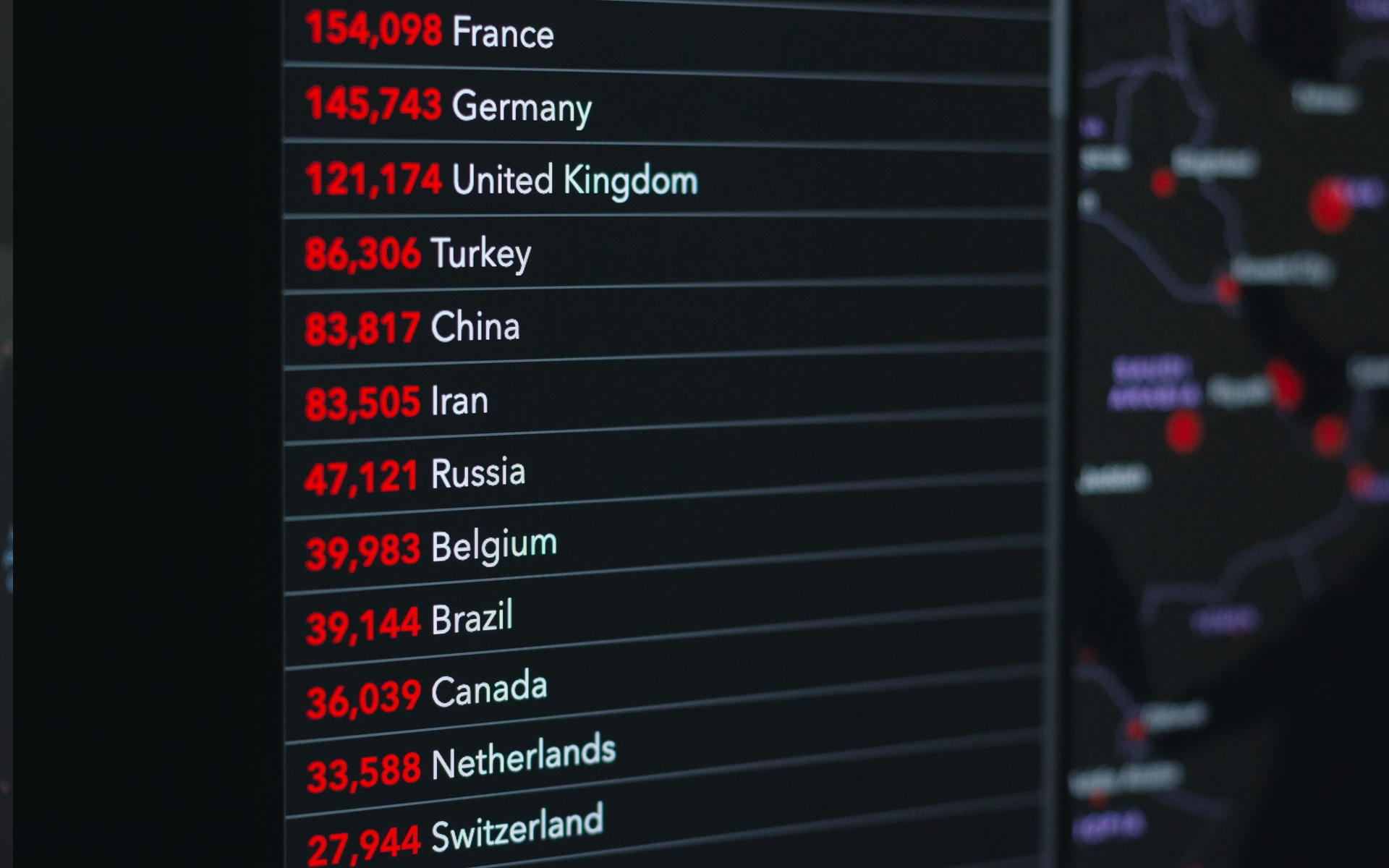
Healthcare Resource Optimization
Big data analytics enabled more effective use of healthcare resources during the pandemic by analyzing data related to hospital bed occupancy, availability of medical supplies, and healthcare personnel.
Using this data, authorities were able to identify resource gaps, streamline logistics, and ensure efficient allocation of resources where they are most needed.
Big Data Applications in Healthcare
The impact of big data analytics in healthcare is already being witnessed in various real-world applications:
Early Disease Detection
Health authorities can detect disease outbreaks early by monitoring data from electronic health records, wearable sensors, and social media sources.
This data helps initiate preventive measures, allocate resources, and limit the spread of infectious diseases.
Precision Medicine
Big data tools enable the identification of genetic markers, biomarkers, and treatment response patterns.
Healthcare providers can develop personalized treatment plans based on this knowledge, tailoring interventions to individual patients.
Clinical Decision Support
Big data analytics tools can analyze vast amounts of medical literature, patient records, and clinical guidelines to provide clinicians with evidence-based recommendations and decision support.
This assists healthcare professionals in making informed treatment decisions and improves patient outcomes.

Drug Discovery and Development
Big data analytics accelerate drug discovery by analyzing extensive genomic data, molecular interactions, and clinical trial results.
Identifying potential drug targets and predicting drug efficacy can help researchers streamline the development of new therapies.
Overcoming Challenges and Ethical Considerations
While big data analytics has a lot of potential in healthcare, it also poses certain challenges. Collecting and storing a massive amount of sensitive patient information would require robust privacy and data security.
So, to protect patient confidentiality and protect data, the authorities in charge of this data must practice strict data governance, anonymization techniques, and adherence to regulatory frameworks like HIPAA in big data management.
Moreover, data scientists, healthcare professionals, and policymakers need to do interdisciplinary collaborations on the matter to ensure responsible and ethical utilization of big data technologies in healthcare.
They must endorse trust and implement ethical standards of operation through transparent communication, informed consent, and data-sharing agreements.
Conclusion
Big data analytics has revolutionary potential in healthcare and medical research. There’s a lot it can help medical professionals do, like enable data-driven decision-making, suggest personalized treatments, detect diseases at an early stage, and make breakthrough discoveries.
However, with having access to such critical and powerful data comes great responsibility. Many organizations face various challenges while securely maintaining big data databases.
But they can be addressed with proper data privacy, security, and ethical considerations in your practices.
By harnessing the potential of big data analytics responsibly, we can unlock hidden insights, improve patient care, and shape the future of healthcare.










